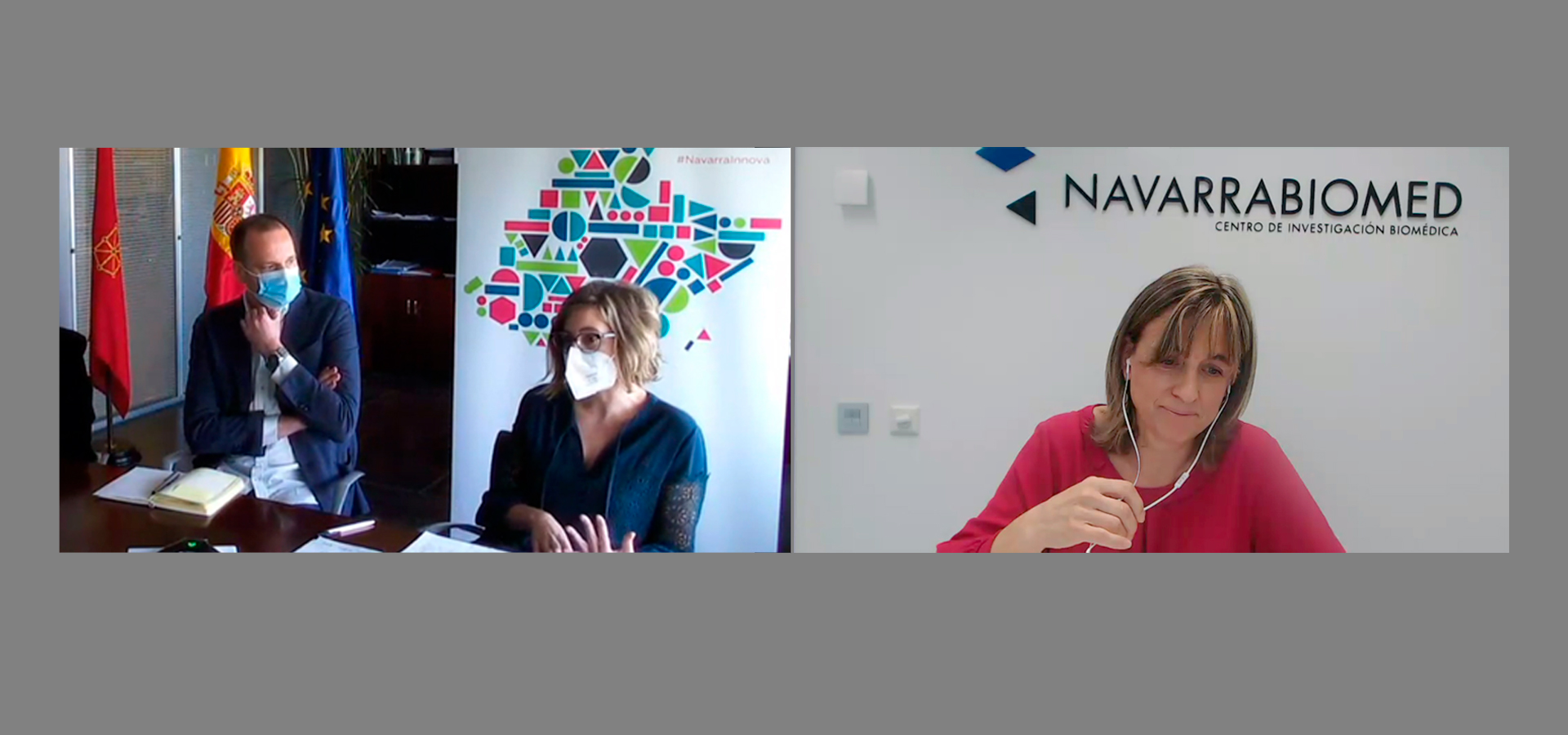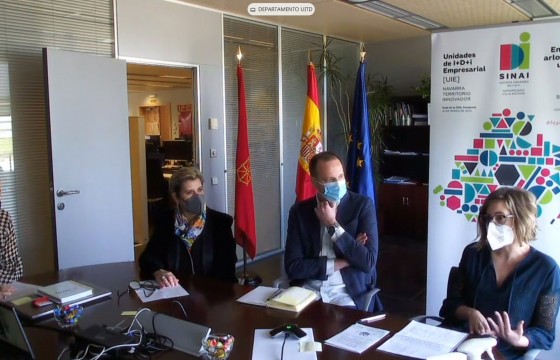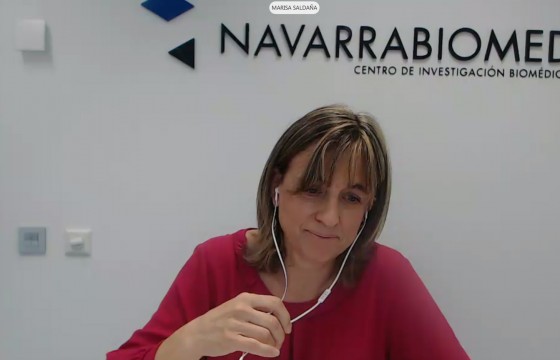
Josune Hualde presents NAGEN PEDIATRICS at Government of Navarre webinar on personalized medicine
- Regional Minister Cigudosa highlighted the advantages of personalized medicine to associations of patients, professionals and citizens
Juan Cruz Cigudosa, Navarre Minister of Universities, Innovation and Digital Transformation, inaugurated the webinar “My Genome: The Key to Personalized Medicine” this morning as part of the Ministry’s Innovation Fridays series of digital conferences. The webinar was developed in collaboration with Navarrabiomed, NASERTIC, Clínica Universidad de Navarra and the SARAY association.
The Minister announced that a public consultation of the draft of the Personalized Precision Medicine Strategy will be held in the next three weeks and that citizens will have one month to make contributions. He also said that the purpose of the webinar was to inform professionals and patients of the advantages of personalized medicine for the people of Navarre.
Also participating in the webinar was Mikel Irujo, Navarre Minister of Economic and Business Development, who mentioned “the importance of collaboration when drawing up the Comprehensive Personalized Medicine Strategy.” He said, “This field provides an opportunity to strengthen the Navarre health ecosystem and give a solid boost to job creation, based on public-private collaboration from the perspective of economic and business development. It is included in the S3 Smart Specialization Strategies of Navarre with the aim of helping improve competitiveness and well-being in Navarre.”
Another speaker at the webinar was Marisa Saldaña, a family member of a patient in the NAGEN 1000 Project, who described her personal experience. The webinar also included a roundtable discussion moderated by Yaki Hernández, the Technical Director of the SARAY association, with the participation of Josune Hualde, a pediatrician at the Hospital Complex of Navarre and the principal investigator at Navarrabiomed for the NAGEN PEDIATRICS Project; Ana Patiño, the Director of the Genomic Medicine Unit at the Clínica Universidad de Navarra; and Gonzalo R. Ordóñez, the Director of Personalized Medicine and Laboratories at NASERTIC.
Personal and professional experiences
Marisa Saldaña said that personalized medicine projects like NAGEN 1000 “help improve knowledge of rare diseases and open new research areas that can lead to major advances in the treatments available to our family members.”
She continued, “NAGEN 1000 provided an explanation for the symptoms and problems our son has. Now we know why it happens and what those disorders are caused by. Thanks to these initiatives being applied all over the world, we’ve been able to make contact with other families that have children with the same disorder and share our life experience with them.”
Ana Patiño pointed out that genome sequencing for the clinical management of patients “should be adjusted and adapted to the needs of each patient and should include suitable genetic counseling.” Therefore, she said, “Interpreting the genomic data is highly critical in order to help patients.”
She continued, “Our country and region boast considerable public and private sequencing resources, but the most important is ensuring the data are suitably interpreted so they are clinically useful to patients.”
For Gonzalo R. Ordóñez, the technical challenges of human genome sequencing have been overcome. “We’ve gone from a situation in which genome sequencing involved years of work and hundreds of millions of euros in investment to Navarre’s current situation of having its own infrastructure for providing fast and economical gene sequencing.”
However, he pointed out that having human genome sequencing capacity in Navarre “does not mean it’s a good idea to sequence every patient in Navarre. Instead, different sequencing applications should be used in accordance with clinical guidelines and recommendations.” He also said, “It’s necessary to promote training and provide information, like we’re doing at this event, so that professionals and patients are aware of these indications and the results that can be expected from genome analysis.”
Josune Hualde highlighted “the importance of promoting research and acquiring more information about the genome.” She said, “Advances in genomic medicine have helped us gradually discover new uses, like the one presented through the NAGEN PEDIATRICS Project, which aims to use whole genome sequencing in acute clinical situations of hospitalized children where there is a suspected genetic disorder, a positive newborn screening, or young boys and girls with cancer.”
She continued, “Genetic disorders are very significant in pediatric patients and diagnosing them is complex. The prospects offered by new advances in genomic medicine look very promising. From a clinical perspective, these advances represent a real opportunity to improve the quality of life of these children. However, we have to be realistic and understand that, even though we hope to be able to make a diagnosis in a considerable number of cases (20%-30% according to the scientific literature), other cases will go unsolved.” She went on to say that, in these cases, reanalyzing genome sequencing may improve diagnosis as new variants related to the disorder are described.



